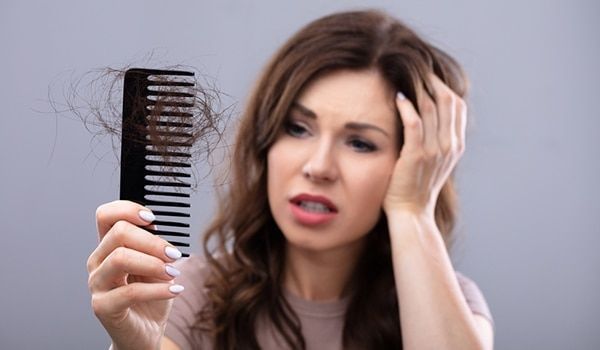Introduction:
Adderall, a medication commonly prescribed for attention deficit hyperactivity disorder (ADHD) and narcolepsy, has become a subject of interest due to its potential side effects. One of the concerns is whether Adderall can cause hair loss. While anecdotal reports and discussions on internet forums suggest a link between the two, scientific evidence remains inconclusive. In this article, we will delve into the subject of Adderall and hair loss. We will explore the existing research and shedding light on the potential connection.
Understanding Adderall:
Adderall is a stimulant medication composed of amphetamine and dextroamphetamine. It works by increasing the levels of certain neurotransmitters in the brain, leading to improved focus, attention, and alertness. Due to its effectiveness in managing ADHD symptoms, Adderall has become a widely prescribed medication for both children and adults.
The Hair Growth Cycle:
Before diving into the potential link between Adderall and hair loss, it’s essential to understand the hair growth cycle. Hair growth occurs in cycles, consisting of three phases:
- Anagen phase: The active growth phase, during which the hair follicle produces new hair cells.
- Catagen phase: A transitional phase where hair growth slows down, and the hair detaches from the blood supply.
- Telogen phase: The resting phase, in which the hair follicle is dormant before shedding and allowing new hair to grow.
Hair Loss and Potential Causes:
Hair loss, or alopecia, can occur due to various factors, such as genetics, hormonal imbalances, medical conditions, stress, nutritional deficiencies, and certain medications. Medications disrupt the hair growth cycle, leading to hair loss.
The Connection between Adderall and Hair Loss:
As of this writing, no conclusive scientific evidence connects Adderall to hair loss. However, some anecdotal reports and user experiences suggest a possible association. Adderall’s stimulant nature can increase heart rate and vasoconstriction. This might reduce blood flow to hair follicles and disrupt the hair growth cycle.
Additionally, Adderall can cause side effects like dry mouth and decreased appetite, which could indirectly impact hair health. Poor nutrition and dehydration may contribute to hair thinning and shedding.
Research and Studies:
Despite the lack of concrete evidence regarding Adderall and hair loss, several studies have investigated the effects of amphetamines (one of Adderall’s components) on hair growth. These studies have yielded conflicting results, with some indicating a potential negative impact on hair health, while others found no significant correlation.
It’s crucial to recognize that individual responses to medications can vary. While some individuals may experience hair loss while taking Adderall, others may not observe any adverse effects.
Consulting a Medical Professional:
If you are concerned about hair loss while taking Adderall, it is essential to seek advice from a qualified healthcare professional. Healthcare providers assess your individual situation, review your medical history, and provide personalized recommendations.
Conclusion:
In conclusion, the link between Adderall and hair loss remains controversial. While some anecdotal reports suggest a potential association, scientific evidence is inconclusive at this time. If you are experiencing hair loss or any other concerning side effects while taking Adderall, it is crucial to consult a healthcare professional. They can offer guidance, address your concerns, and explore alternative treatment options if necessary. Remember, individual responses to medications can vary, and what affects one person may not necessarily apply to another.




